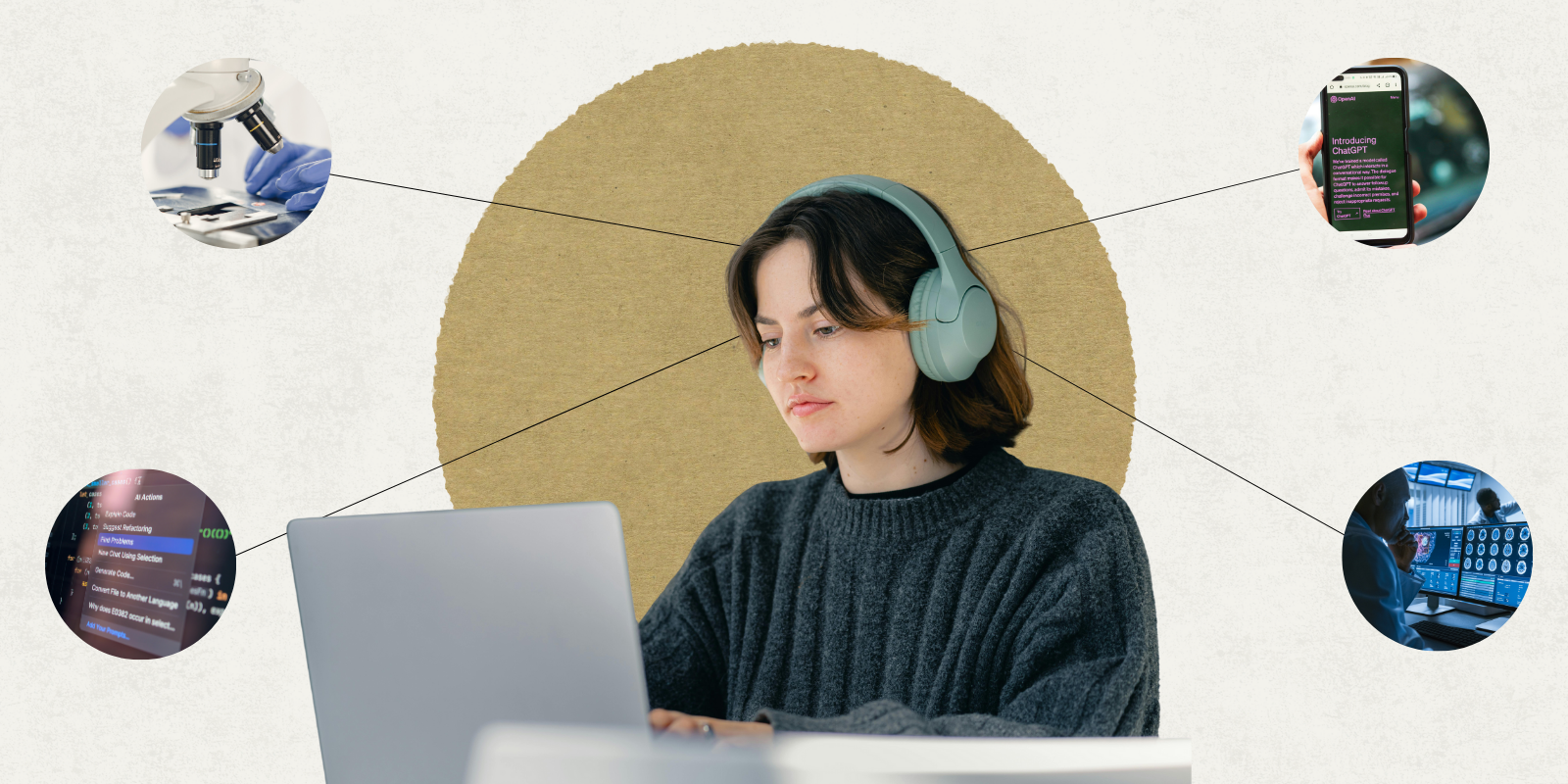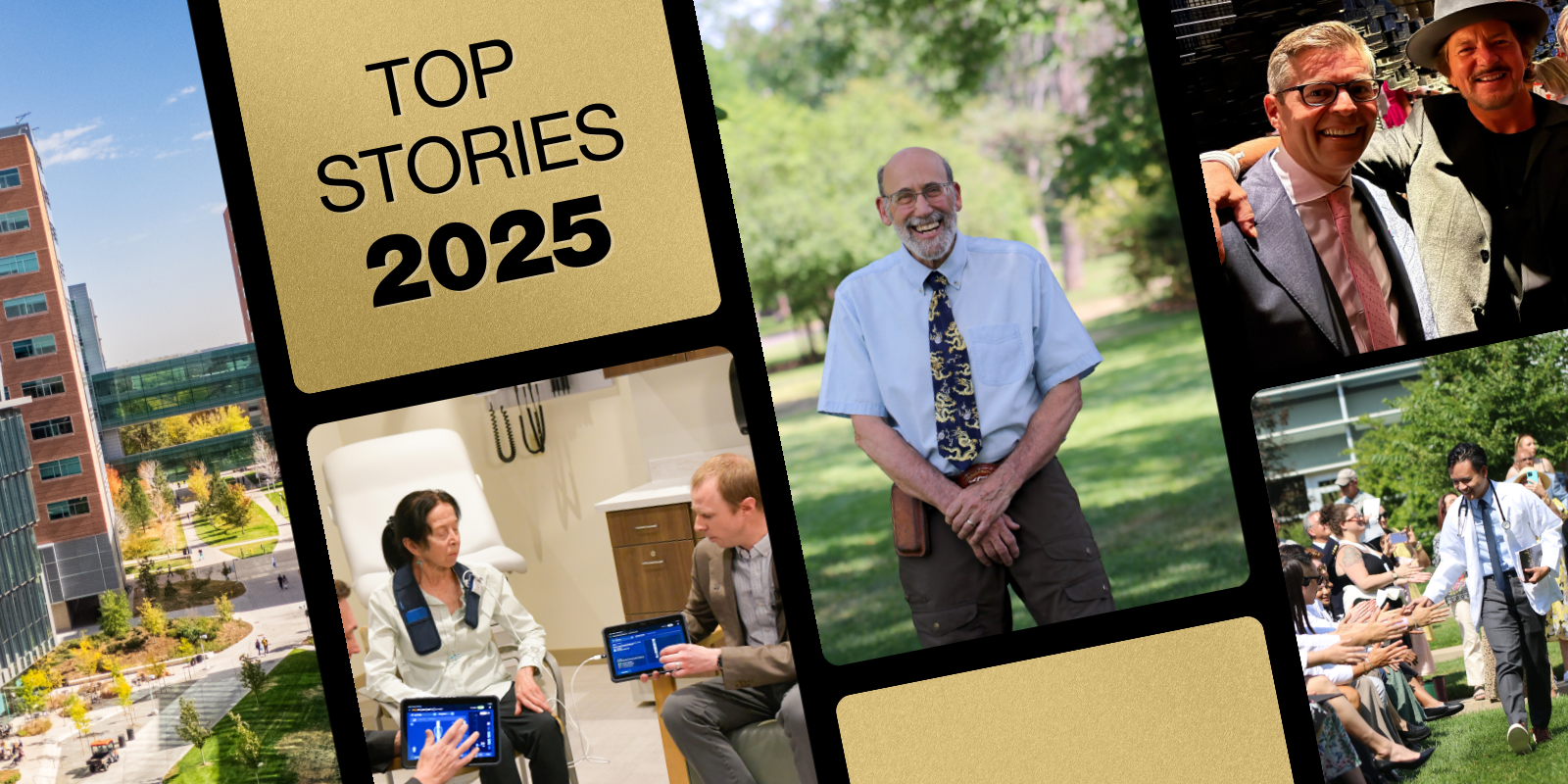Reducing maternal mortality rates, advancing health equity, contributing meaningful research, mentoring young people, and becoming a global health leader — these are just a few of the goals Feruth Kidane holds for the future. This July, she will be one step closer to achieving them by officially becoming a medical student at the University of Colorado School of Medicine and receiving her white coat during the annual Matriculation Ceremony.
Born and raised in Colorado, Kidane has spent years caring and advocating for the community. Despite the challenging road to medical school, her community has helped her remain resilient and believe in her dreams of becoming a doctor.
“It almost feels surreal,” she says about joining the Class of 2028. “I never knew I would get to this point. It was a leap of faith, and I am so grateful for the opportunity.”
As a first-generation American whose parents immigrated to the United States 30 years ago to escape a war happening in their home country of Eritrea, located in East Africa, Kidane has seen the outcomes of health inequities. She aims to uplift historically marginalized communities and show them that they, too, can achieve their goals.
“I would like to inspire and empower others to believe the message of, ‘Yes, they can,’” she says. “I really want to make the world a more equitable, just place — and the way I want to do that is through health, which is fundamental for people to reach their dreams and be who they want to be.”

Feruth Kidane, second from the far left, smiles with members of her family.
The road to choosing medicine
Growing up in a large family, Kidane took on the role of a caretaker from a young age. She learned resiliency from her parents, who worked tirelessly to support the family.
“My parents could not get off work easily to take us to our appointments,” she says. “It impacted our access to health care, and it made me realize how much health goes beyond the clinic and is connected to so many other factors — housing, education, and even language. These experiences are what got me curious about medicine.”
In high school, Kidane volunteered at the Swedish Medical Center and loved being in the hospital.
“Volunteering at Swedish Medical Center developed my passion for medicine and helped me decide that I wanted to become a doctor,” she says.
She graduated from Duke University in 2018 with a bachelor’s degree in evolutionary anthropology, and in 2020, she earned her master’s degree in biomedical sciences at Regis University. That same year, she applied to medical schools, but unfortunately, she did not get accepted into any institutions.
“That was a big hurdle for me. I second guessed myself and wondered, ‘Am I really qualified enough to do this?’” she says.
Those hesitations motivated her to continue building her skills. She gained more work experience, serving in roles such as a medical assistant, a clinical research coordinator, and an affiliate faculty of biology at Regis University. Her perseverance paid off, as she found success when she applied to medical schools again in 2023.
“My advice to others is that it’s not about how many times you apply. It’s about what you have learned and are bringing to the table,” she says.

Feruth Kidane graduated from Duke University in 2018.
Advocating for equity
One of Kidane’s career goals is to reduce maternal mortality rates and address the disproportionate rates women of color face. It’s not just a professional mission — it’s also personal.
When she was about 9 years old, her pregnant mother began bleeding and was rushed to the emergency room. By the time she got to the ER, the bleeding had stopped, and the doctors decided to not perform further examination. Kidane’s mother reluctantly signed discharge paperwork and began to leave, but then she began hemorrhaging. Her mother had complications from placenta previa, where the placenta covers the opening of the uterus.
“I almost lost my mom and my brother, and that experience was not easy,” she says. “I hope to prevent other families from having to deal with that.”
Kidane is also interested in investigating and researching issues that disproportionately affect underserved or marginalized communities, such as maternal health care, diabetes, and HIV.
“I want to work on health equity measures and make real changes to our systems so we can have better health outcomes for everybody, regardless of who that person is and what their background is,” she says.
Advocating to improve unjust and inequitable systems is familiar territory for Kidane, as she has previous experience working as a community organizer and in public health. She is already helping improve health equity at the CU Anschutz Medical Campus, as she has worked as a standardized patient for the Center for Advancing Professional Excellence. Standardized patients act out different scenarios to help teach learners and professionals how to improve their communication, clinical, diagnostic, or examination skills.

Feruth Kidane, center, smiles alongside students in Kenya.
Improving health outcomes anywhere, everywhere
Global health has long been a passion for Kidane. In 2017, she went on an unforgettable trip that showed her how education both empowers and provides opportunity to people.
While attending Duke University, Kidane participated in a program called DukeEngage where she worked as a public health intern for a community development organization. As part of the program, Kidane and a few colleagues traveled to Muhuru Bay in Kenya. Their mission was to stop HIV from spreading in a remote village, which was experiencing a bad outbreak.
“We ended up partnering with a local high school for girls and taught them a basic sex education program, with the hope that those students would teach the middle schoolers,” she says. “I witnessed how education is power, because the girls I worked with were able to have a voice for themselves. To be able to go to the chief of the community at the time and say sex education is needed — I really saw them be able to negotiate for themselves.”
Once Kidane becomes a physician, regardless of where she is in the world, she hopes to minimize health emergencies by advocating for patient education and empowering patients with information. But first, the next four years of medical school lie ahead.
“I’m really looking forward to building relationships with my medical school class, because these are going to be future leaders. I’m excited to learn from them, to grow with them, and to build a great community,” she says.



